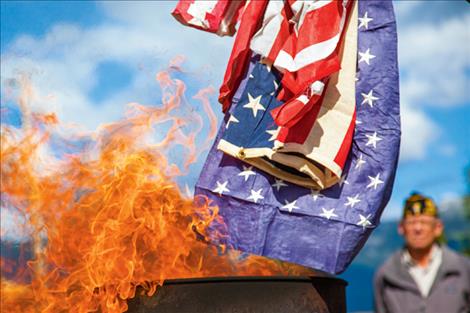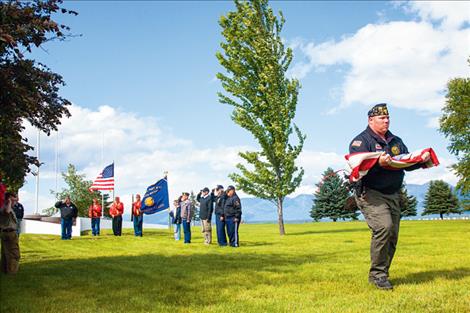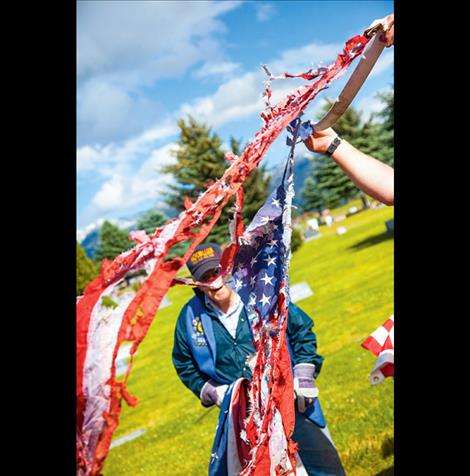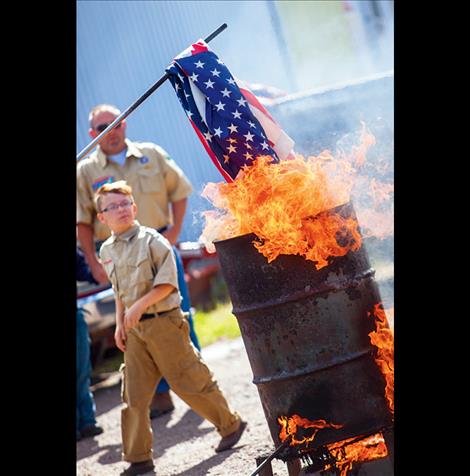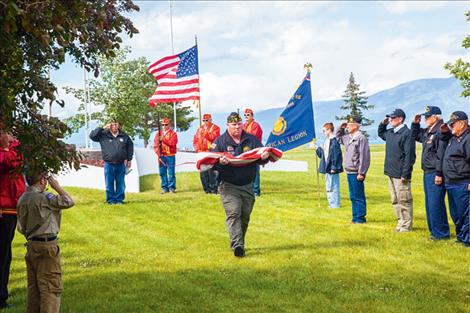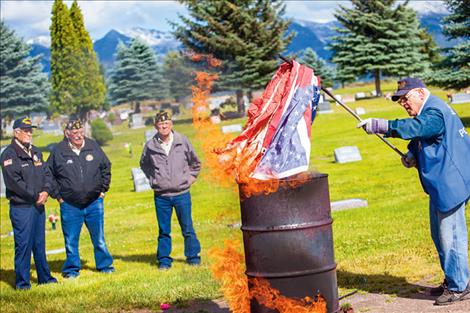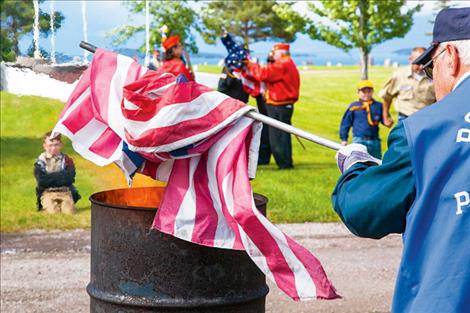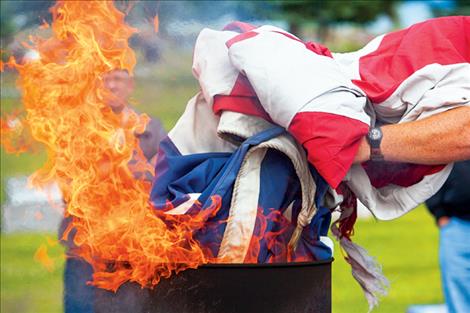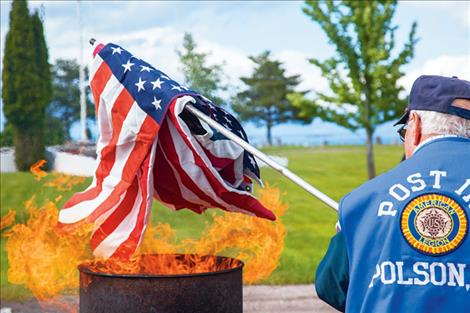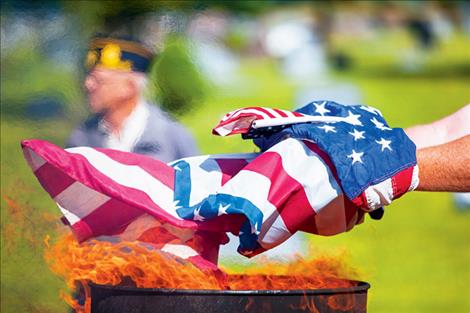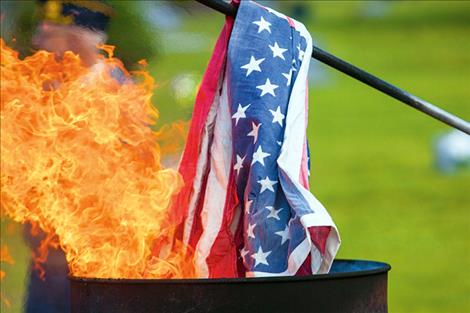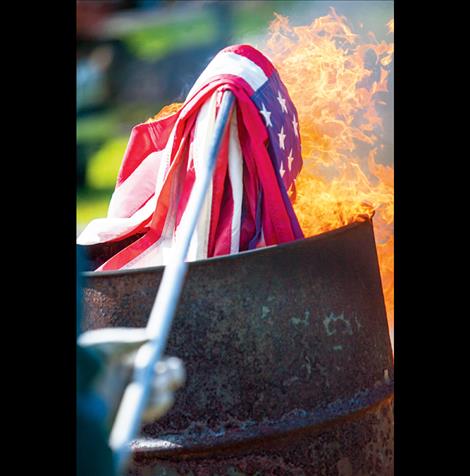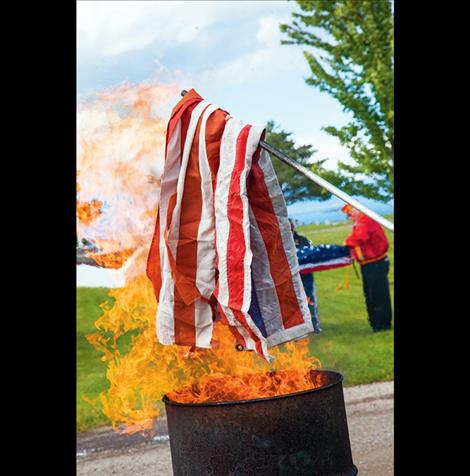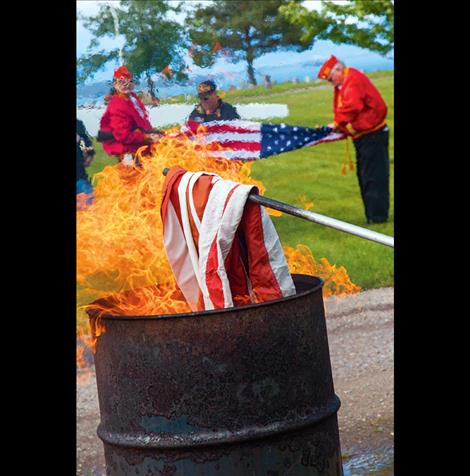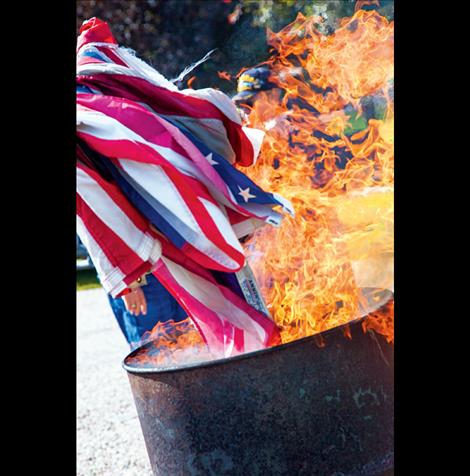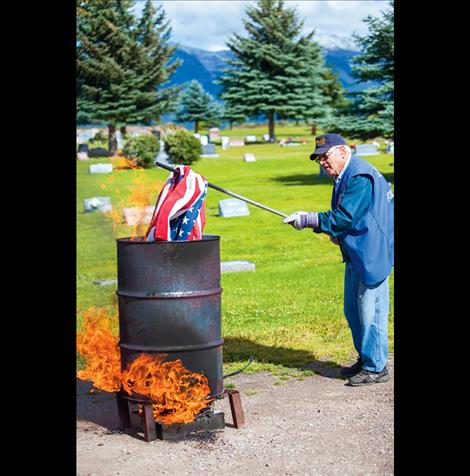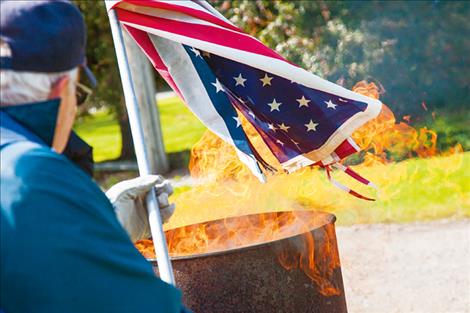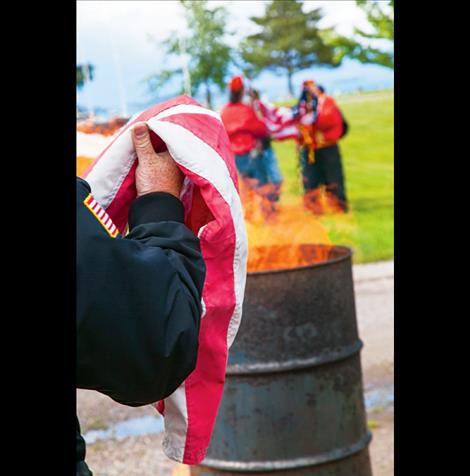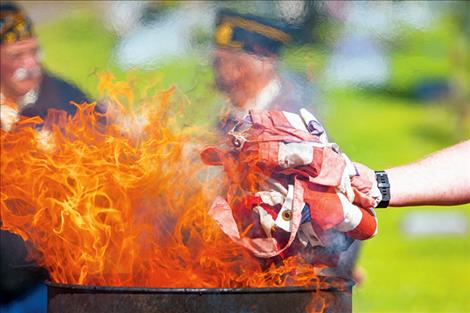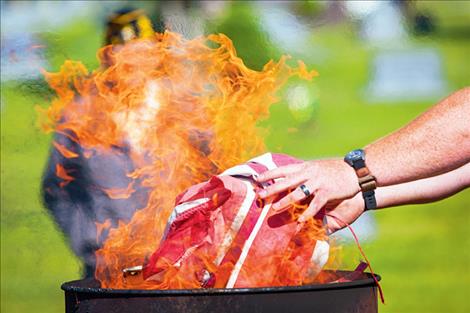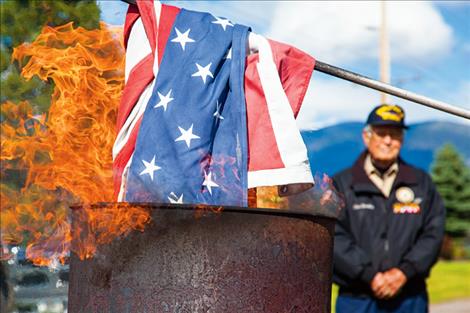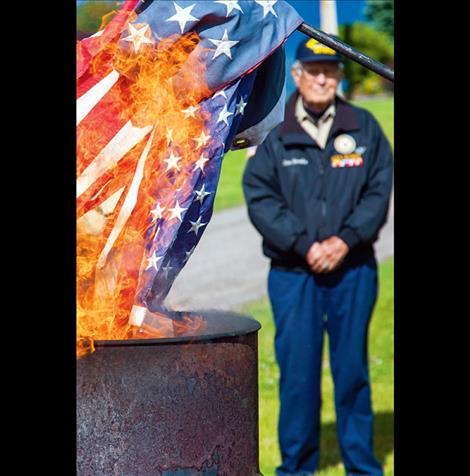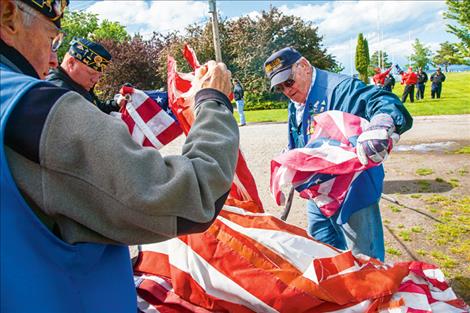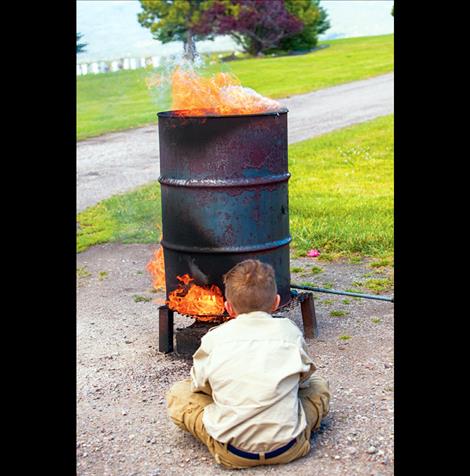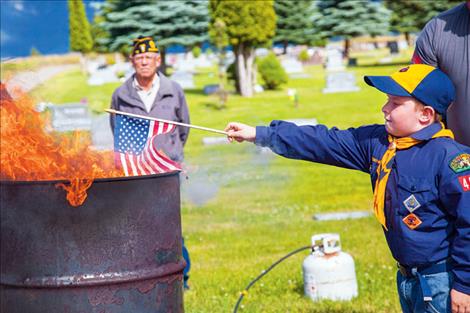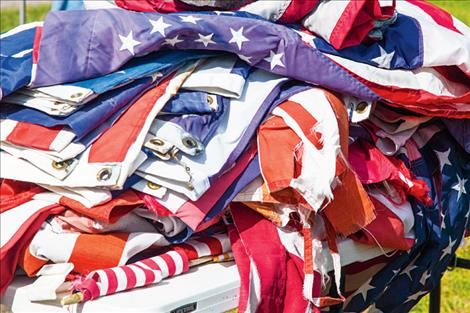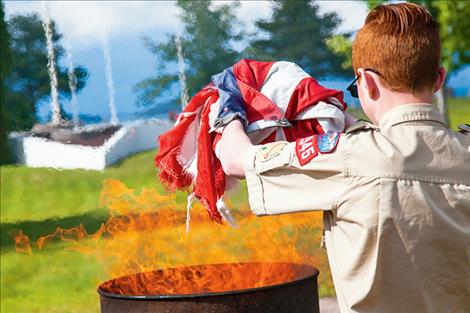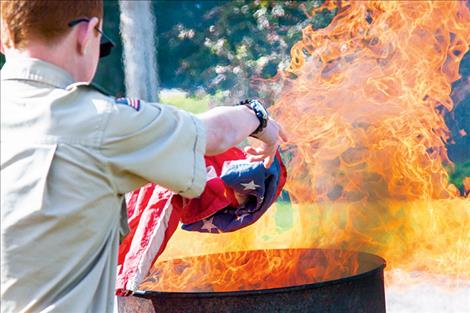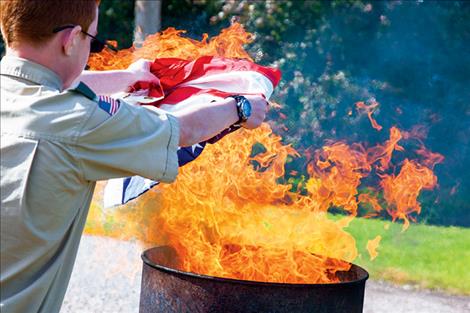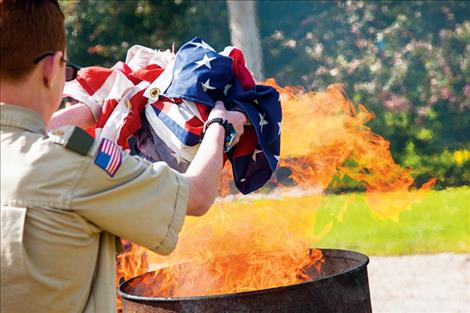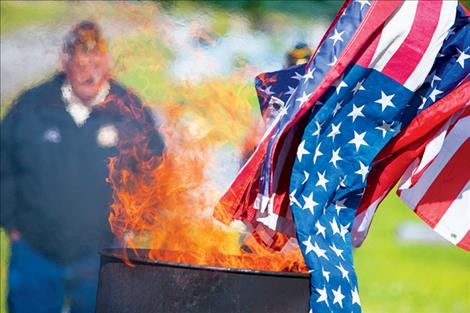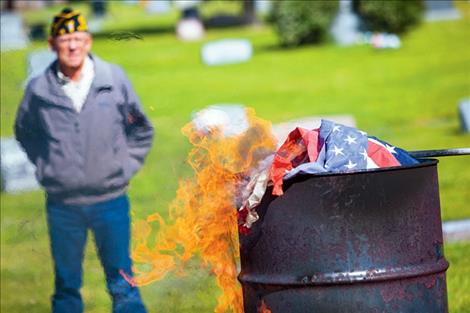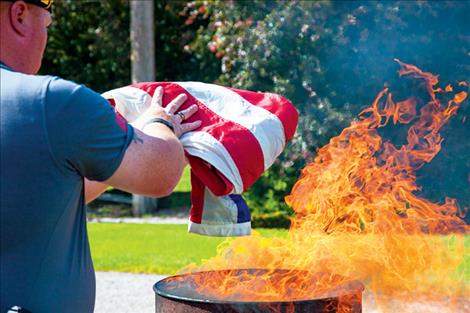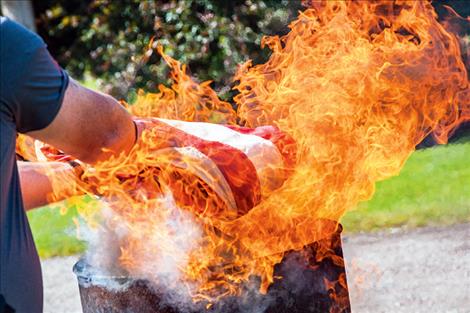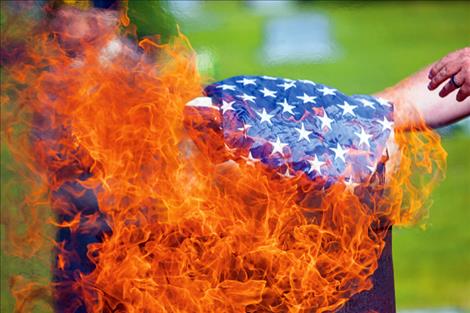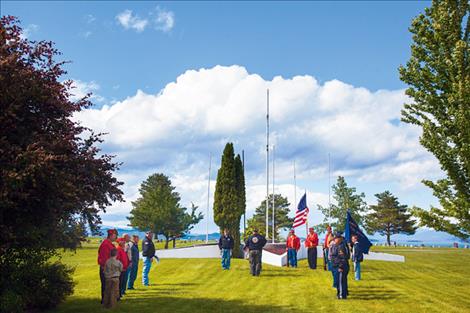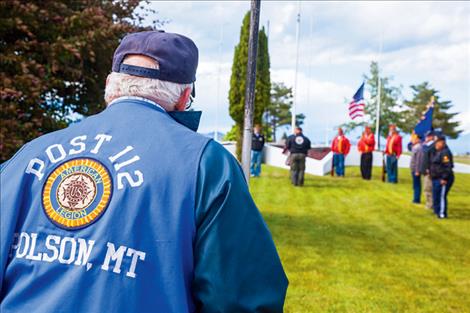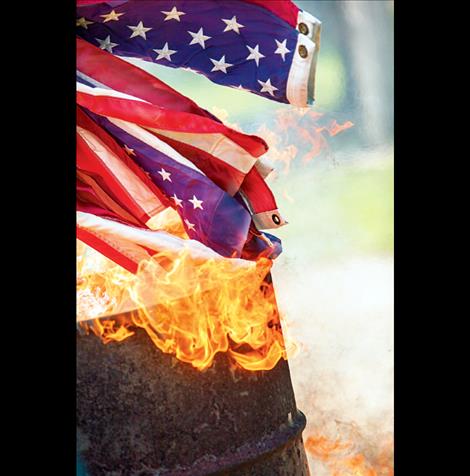Tattered stars, stripes retired by fire
Hey savvy news reader! Thanks for choosing local.
You are now reading
1 of 3 free articles.
Hundreds of well-used Old Glorys were retired in a respectful ceremony on Flag Day, June 14. Whether the worn flags were flown above businesses, in front yards or graced a gravestone, the tattered stars and stripes were all burned in a dignified manner in accordance with the U.S. Flag Code.
The first flag was honored in a ceremonial inspection by leaders of the American Legion Post 112 in Polson, ending with Commander Rich Beauchamp’s recommendation: “Since it’s been faded and worn, in a tribute of service and love, I recommend it be fittingly destroyed.”
The first flag is then saluted and placed on the fire. An assembly line follows as Legion members hand over hundreds of red, white and blue flags of all sizes into the fiery furnace. “It’s just done properly,” Beauchamp said. “That’s the whole idea.”
On June 14, 1885 — the 108th anniversary of the official adoption of The Stars and Stripes — a Wisconsin schoolteacher had her students observe the flag’s birthday. Through the years,cities, schools and individuals chose to fly Old Glory on June 14, but National Flag Day wasn’t officially established until President Woodrow Wilson proclaimed it in 1916.
On December 22, 1942, Congress passed the U.S. Flag Code. Now public law, the code that guides flag handling and conduct originally imposed criminal penalties for certain acts of desecration. But a 5-4 Supreme Court decision in 1990 — regarding a case where demonstrators burned the flag during a protest — struck penalties for desecration, citing that it was unconstitutional and infringed on freedom of expression. Although many Americans find the acts offensive, the decision states “the government may not prohibit the expression of an idea.”















